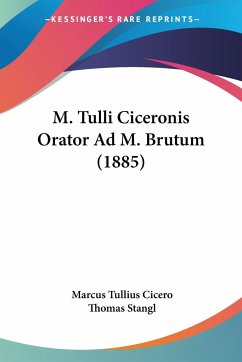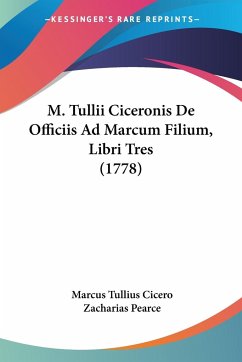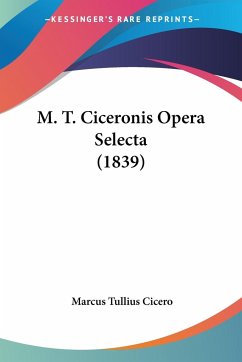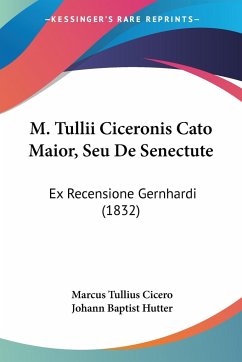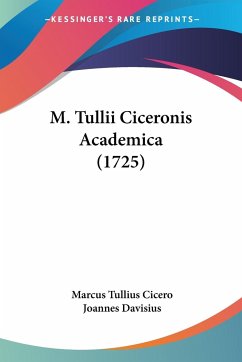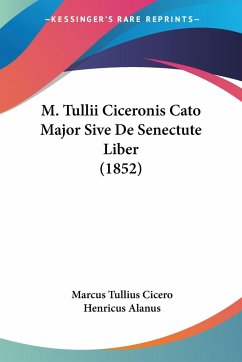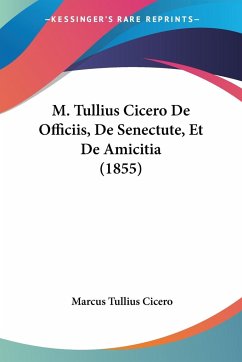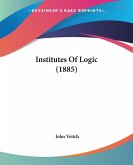M. Tulli Ciceronis Orator Ad M. Brutum est liber a Marco Tullio Cicerone scriptus, qui consilium et praecepta oratoriae ars tradit. In hoc libro, Ciceronis ad Brutum epistulae continentur, quae inter se epistolares colloquii formam habent. Epistulae haec oratoriam disciplinam explicat et clarificat, inter alia de dicendi genere, locutione, memoria et pronuntiatione tractans. Editio huius libri anno 1885 edita est.This scarce antiquarian book is a facsimile reprint of the old original and may contain some imperfections such as library marks and notations. Because we believe this work is culturally important, we have made it available as part of our commitment for protecting, preserving, and promoting the world's literature in affordable, high quality, modern editions, that are true to their original work.
Bitte wählen Sie Ihr Anliegen aus.
Rechnungen
Retourenschein anfordern
Bestellstatus
Storno

